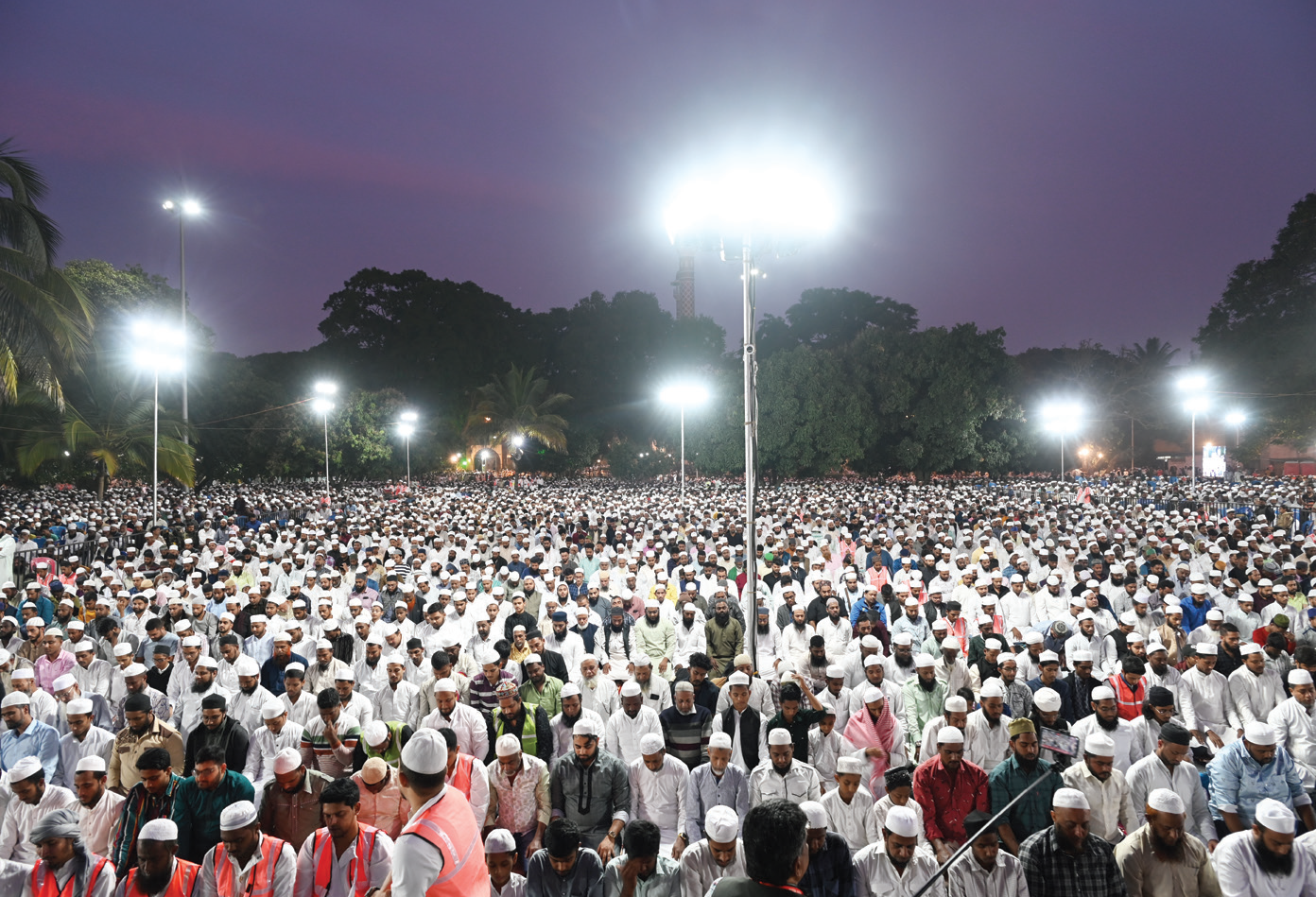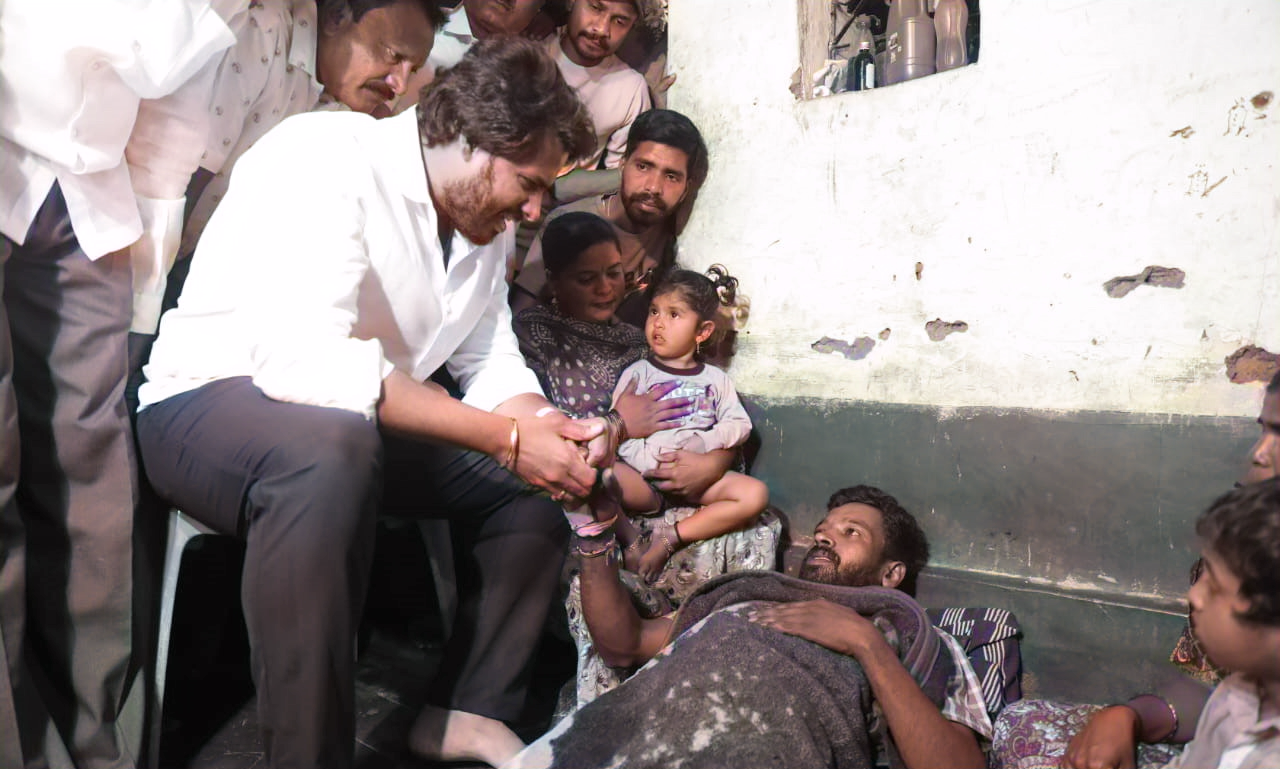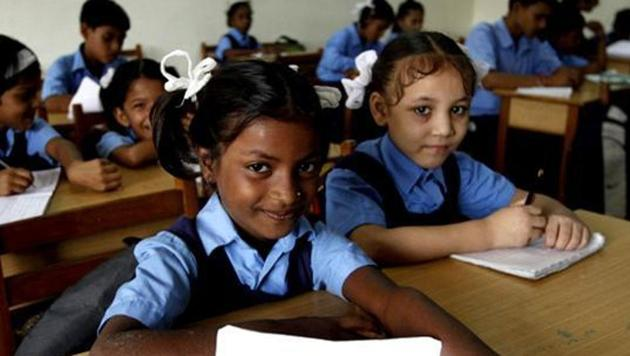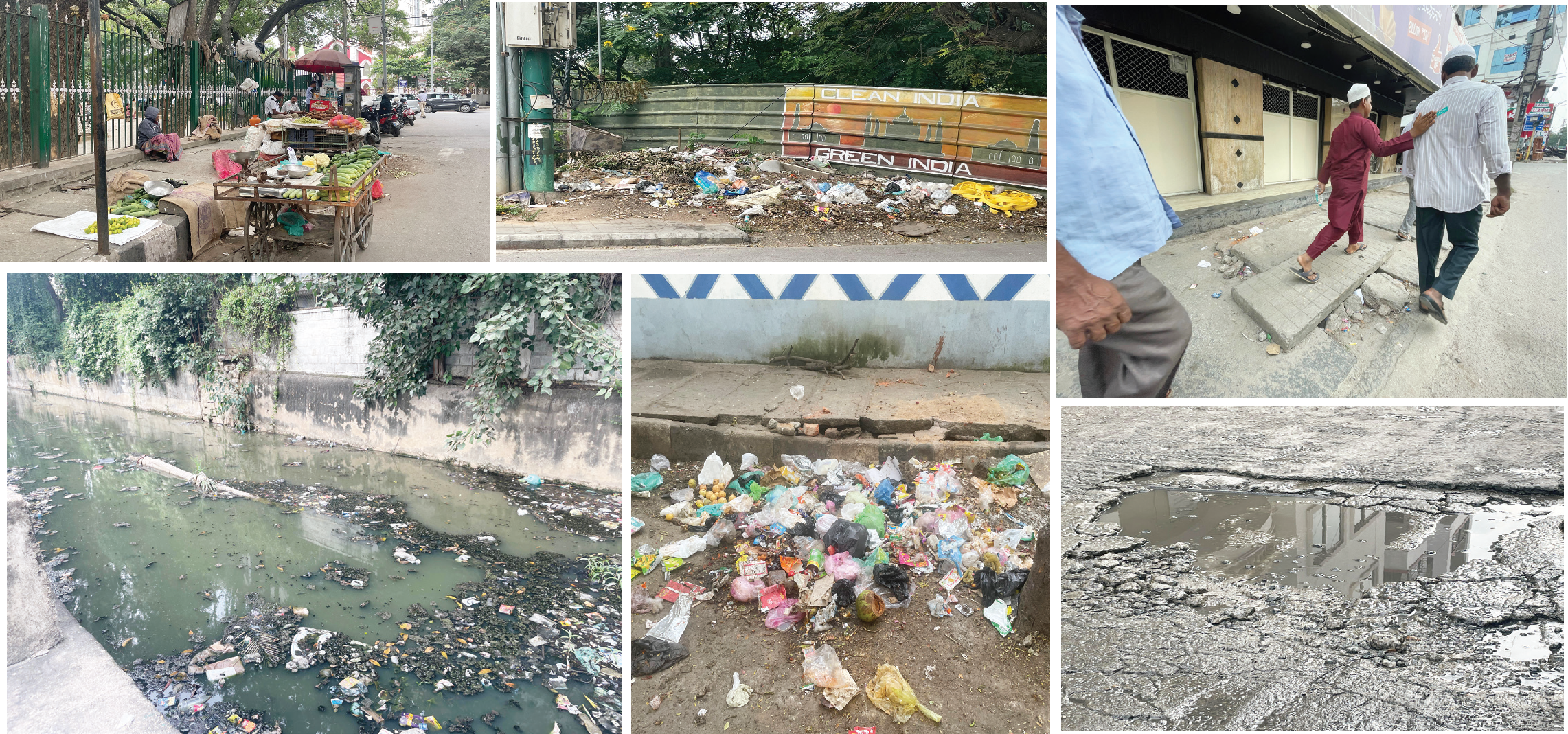
AIMPLB draws massive crowd on last day of annual session
NT Correspondent
Bengaluru
The 29th annual session of the All India Muslim Personal Law Board (AIMPLB) concluded at the Darul Uloom Sabeel Ur Rashad otherwise known as the Arabic College in Bengaluru’s Nagawara on Sunday. The two-day session was capped by a public meeting at the Eidgah Quddus Saheb ground in the state capital. The event is estimated to have drawn at least 60,000 people. The emphasis of the annual session and the public meeting was on the protection of waqf properties. In fact, the topic of the latter event was “Protection of Shariat and Protection of Awqaf”.
In Islam, waqf is an endowment made by a Muslim in the name of God, which is usually land for charitable purposes. Auqaaf is the plural of waqf. The issue has gained prominence because of Prime Minister Narendra Modi-led Union government’s push to pass the Waqf (Amendment) Bill, which AIMPLB claims will finish off waqf properties. The Bill was sent to the Joint Parliamentary Committee (JPC) after fierce opposition to it in the Lok Sabha. The JPC received some 3,75,000 emails, telling them they opposed the amendment. However, the Centre has listed the Bill for the winter session of the Parliament.
There has also been a controversy in the state where the BJP and allied right wing forces have been staging protests against tehsildars issuing notices to farmers that their lands were being claimed by the Karnataka State Board of Auqaaf (KSBA). Meanwhile, AIMPLB has elected Maulana Muhammad Mohsin Taqvi and Maulana Obaidullah Khan Azmi as their vice presidents. Speaking at the public meeting at Quddus Saheb Eidgah ground, Jamaate- Islami Hind Karnataka (JIH-K) state president Dr Mohammad Saad Belgami said the protection of waqf properties from governmental heavy handedness and encroachment by private parties was one of many issues facing the community. Others included mob lynching and the like, he added.
“We should be given the right to handle our social and familial affairs as per our (personal) law. The constitution also allows for this. Article 25 and 26 allows for the protection of traditions and religions and lets them follow their (personal) laws and customs. It also allows for the protection of assets and institutions, which includes auqaaf. So we have the total independence to manage it,” he said.
 English daily published in Bengaluru & Doha
English daily published in Bengaluru & Doha

.png)



